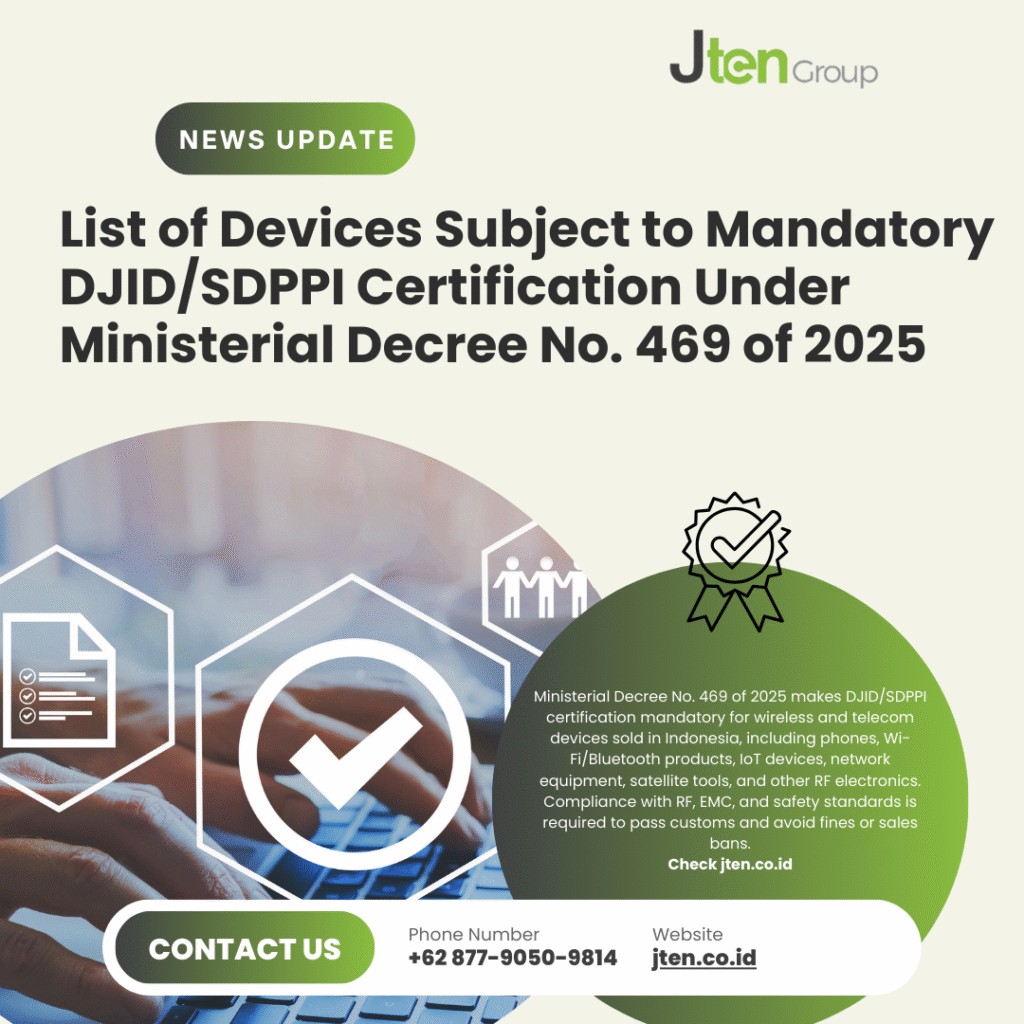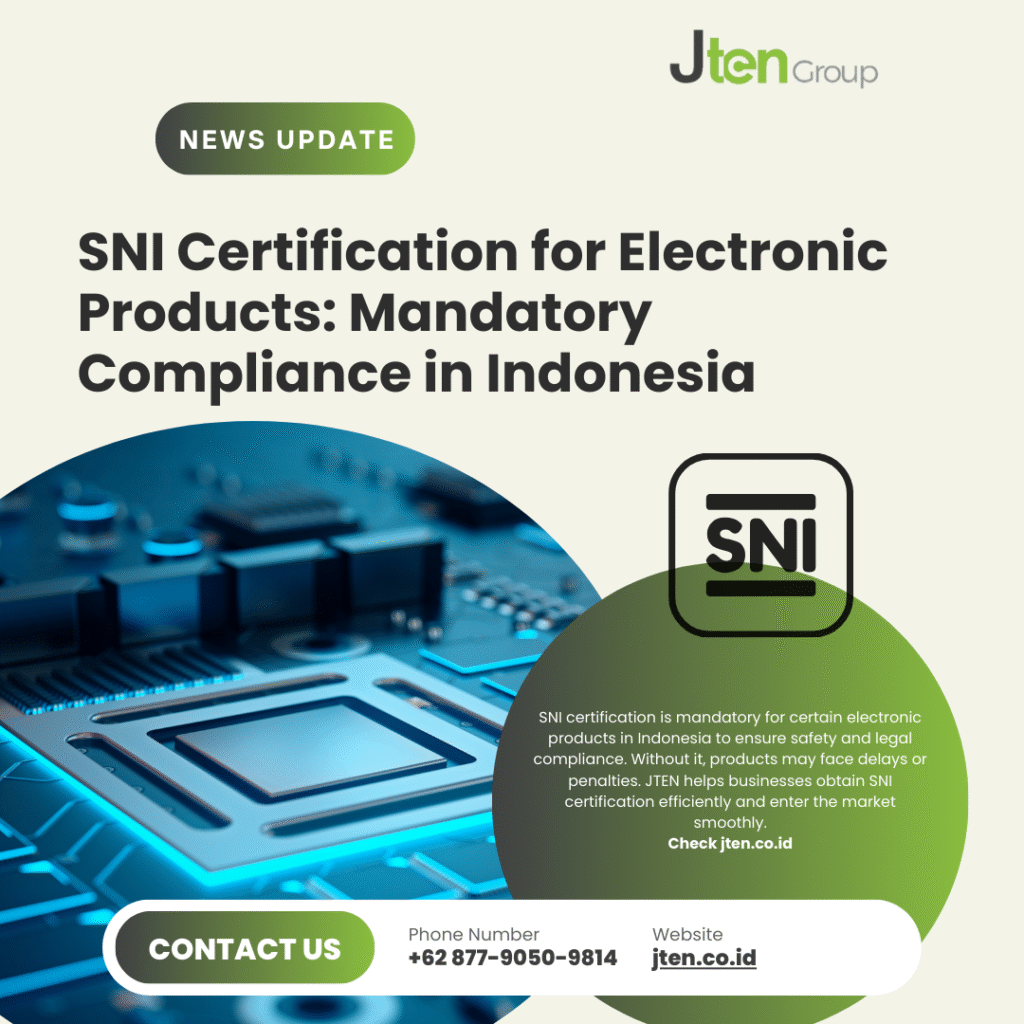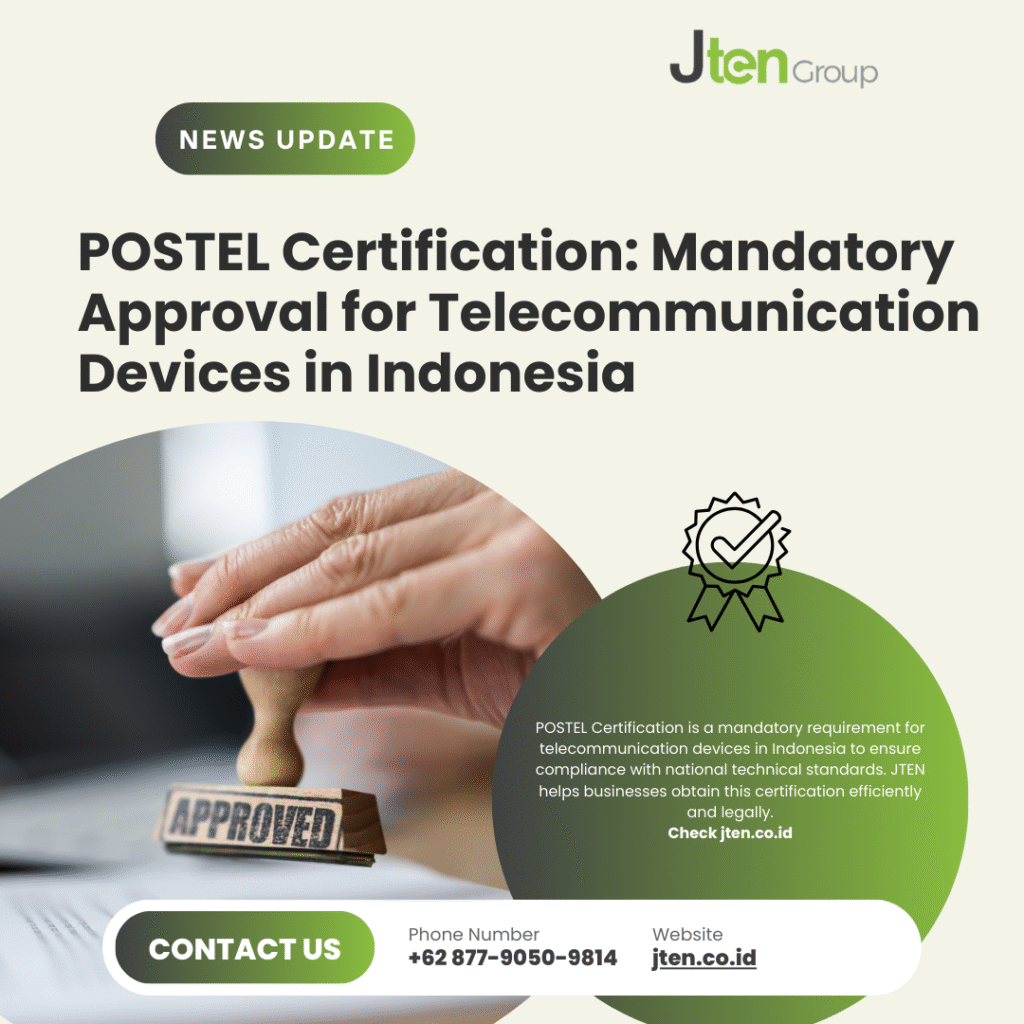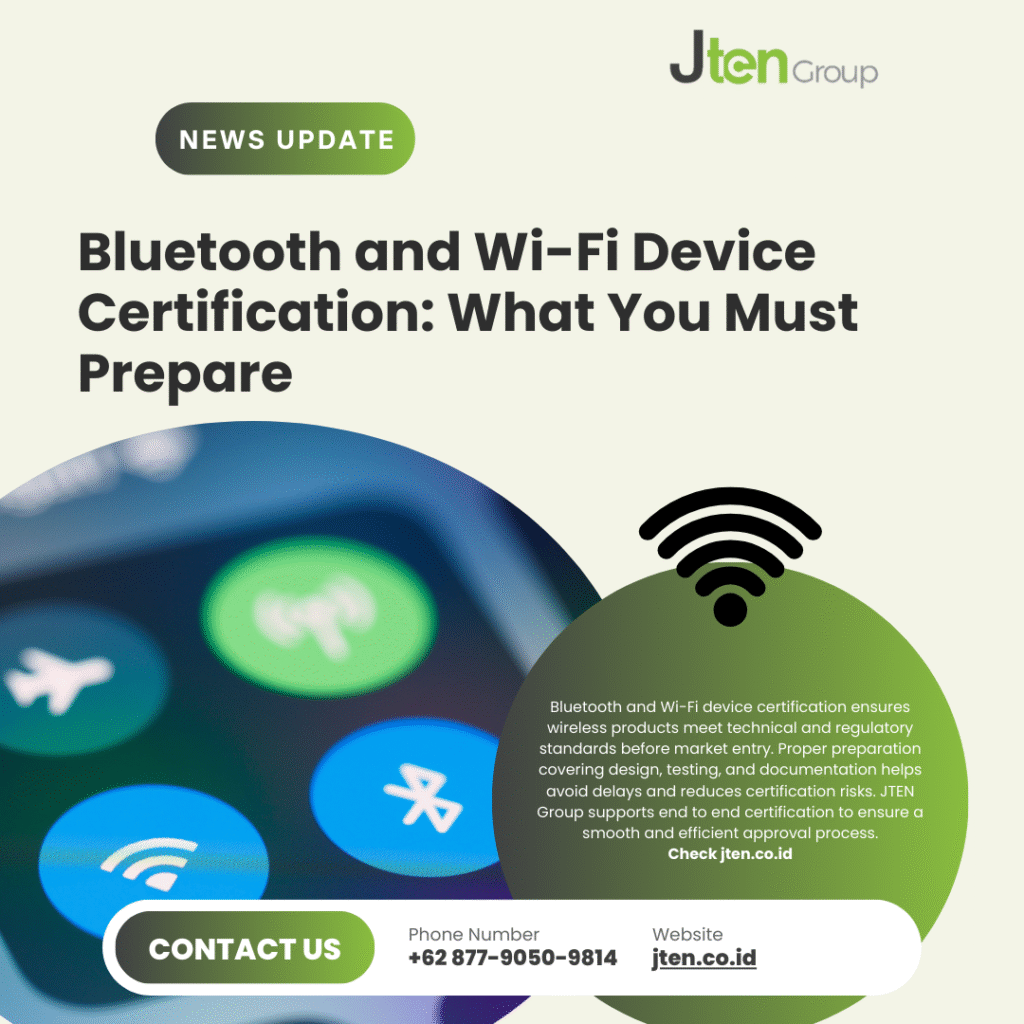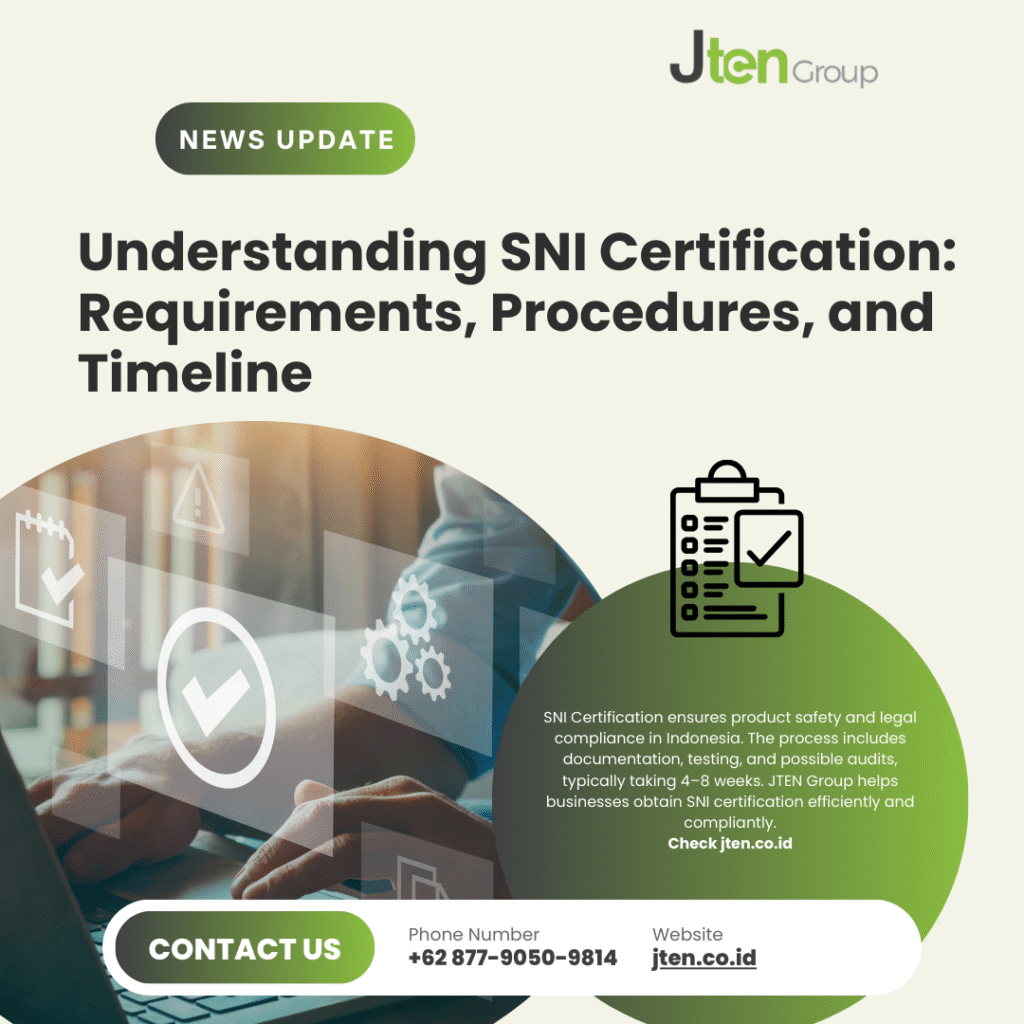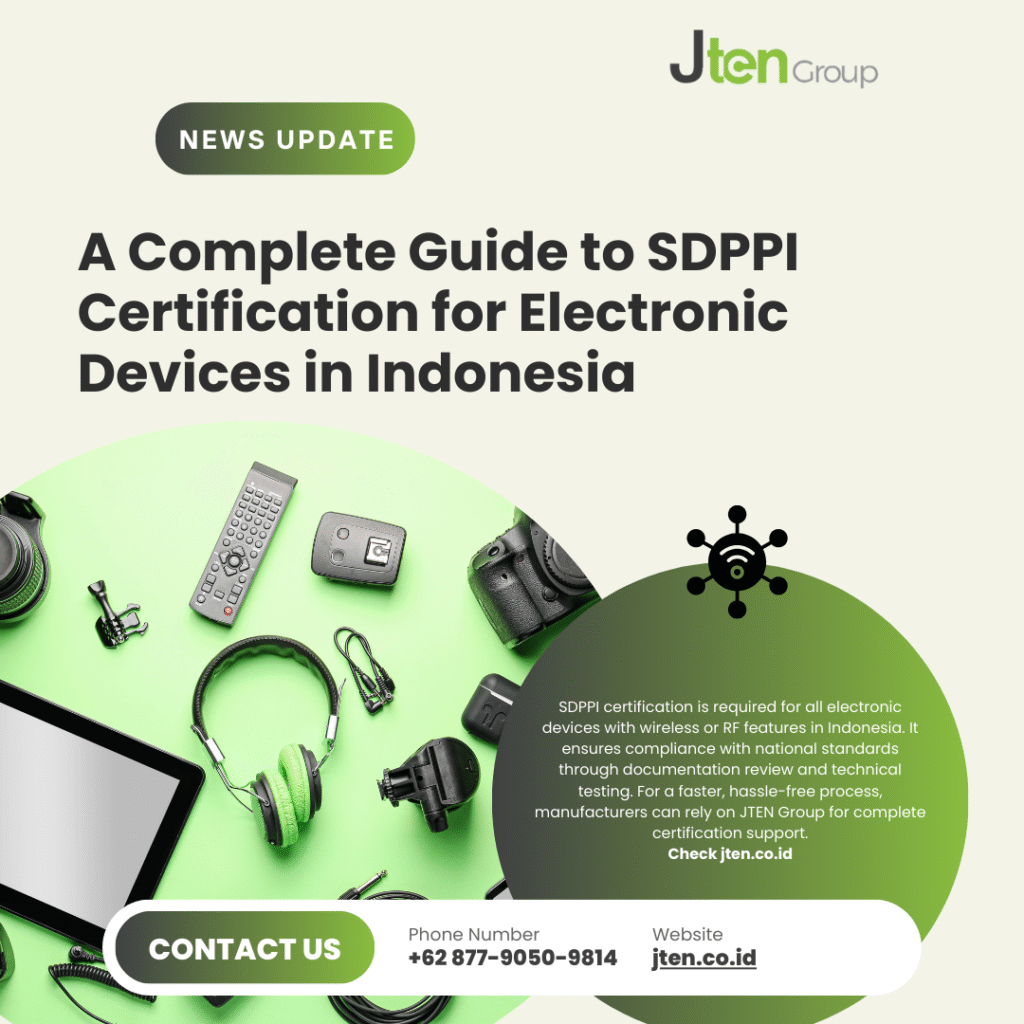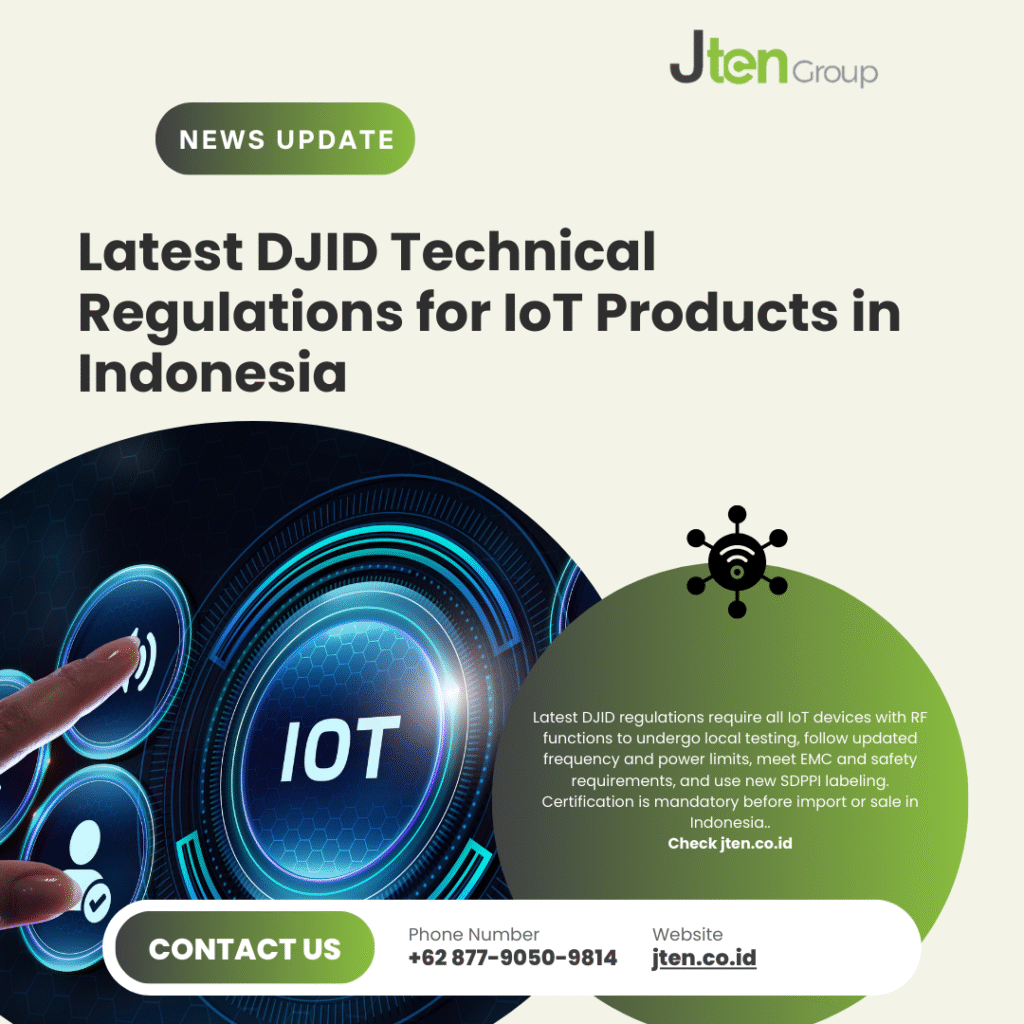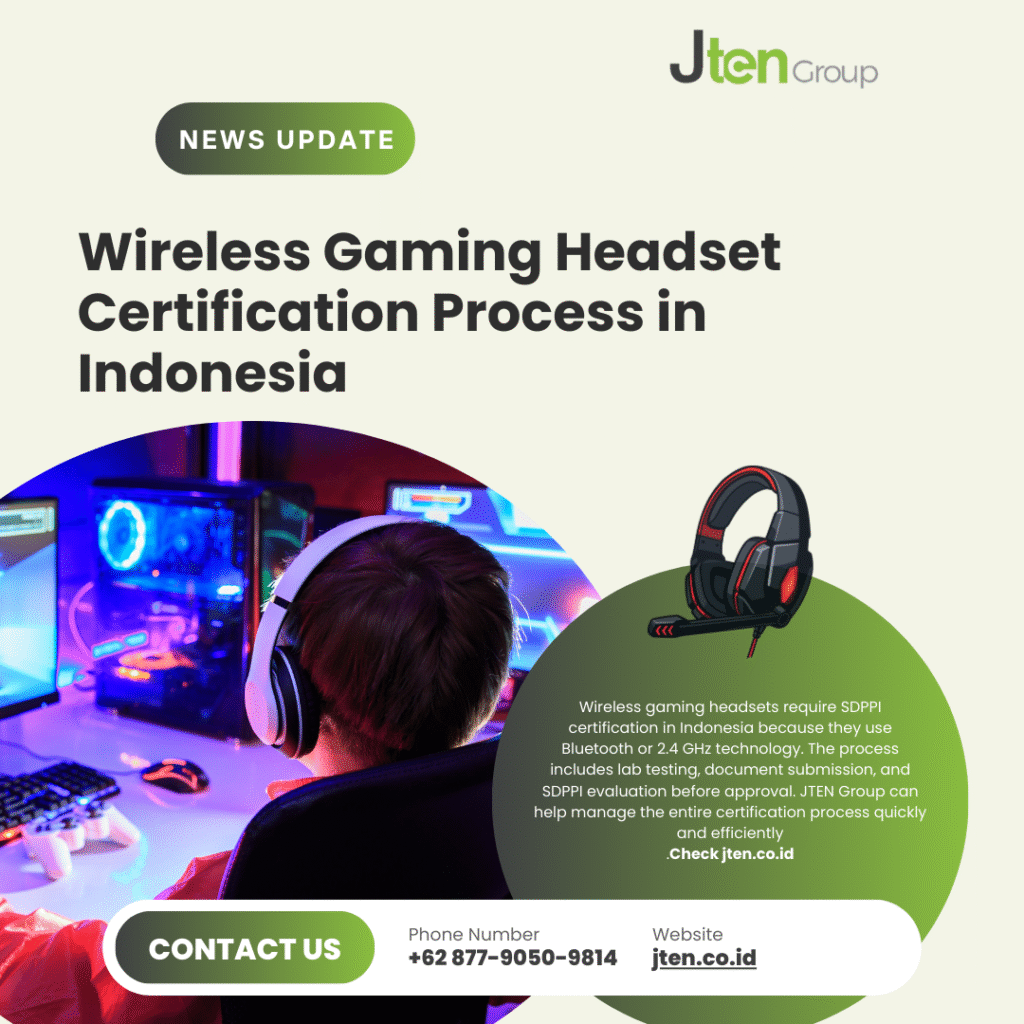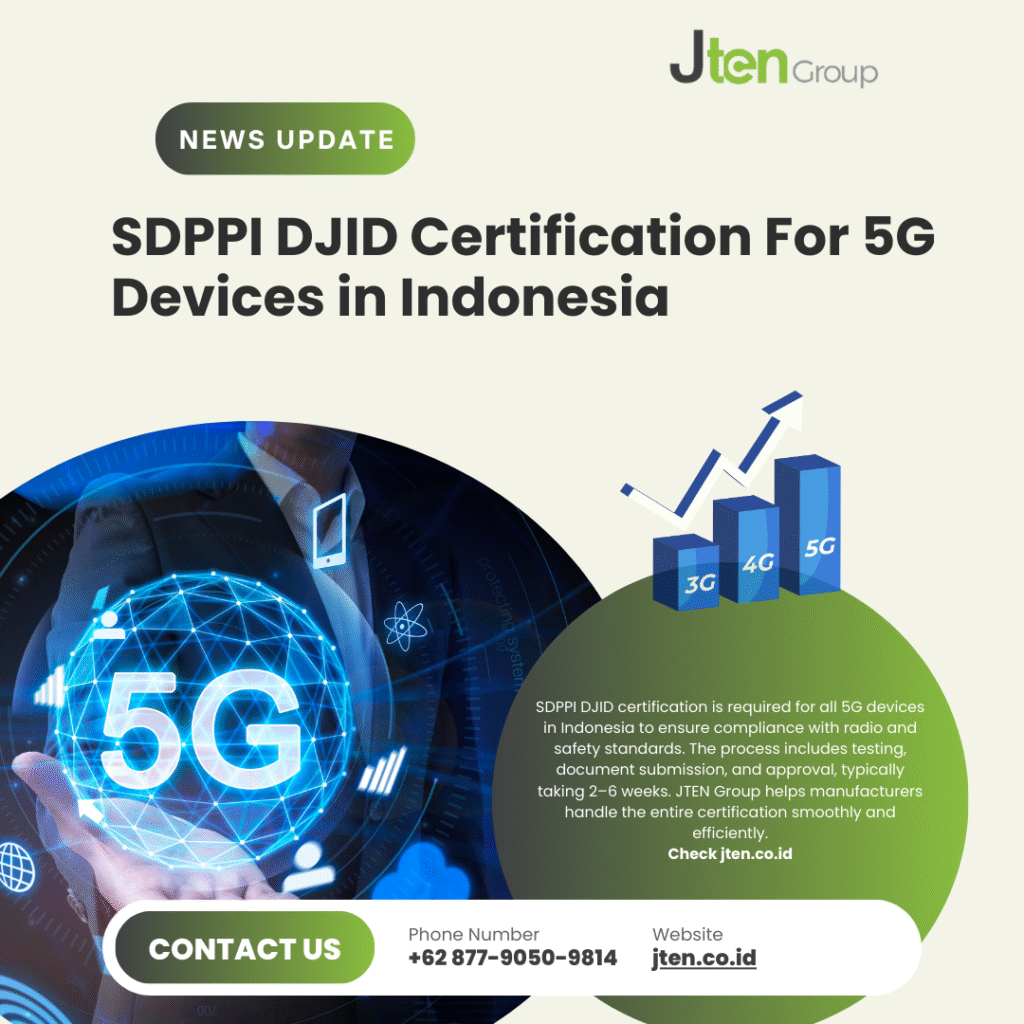List of Devices Subject to Mandatory DJID/SDPPI Certification Under Ministerial Decree No. 469 of 2025
Indonesia continues strengthening telecommunications regulation through Ministerial Decree No. 469 of 2025, which outlines the mandatory DJID/SDPPI certification requirements for telecommunication and radio frequency devices. Any manufacturer, importer, or distributor planning to market wireless or connected devices in Indonesia must ensure compliance before distribution. Non-certified products risk customs rejection, sales prohibition, and penalties. This article explains the categories of devices covered under the decree and why certification is essential. What is DJID/SDPPI Certification? DJID (Directorate General of Digital Infrastructure), formerly known as SDPPI, is the Indonesian authority responsible for: Certification ensures devices do not interfere with networks, operate safely, and comply with Indonesian spectrum allocation rules. Devices Requiring Mandatory Certification Under Decree No. 469 of 2025, the following product groups are subject to mandatory approval: 1. Cellular & Mobile Communication Devices Devices that connect to public cellular networks: 2. Short-Range Wireless Devices (SRD) Low-power RF devices operating in license-exempt bands: 3. Internet of Things (IoT) Equipment Connected smart devices using RF or telecom modules: Read too : SNI Certification for Electronic Products: Mandatory Compliance in Indonesia 4. Network & Telecom Infrastructure Equipment Devices supporting telecom connectivity: 5. Broadcasting & RF Transmission Devices Equipment transmitting radio signals: 6. Satellite Communication Devices 7. Radar & Specialized RF Equipment 8. Consumer Electronics with Wireless Features Even if telecom is not the main function: Why Compliance Matters Certification is not optional. It is required to: ✔ Obtain Indonesian market approval✔ Pass customs clearance✔ Avoid product recalls✔ Protect network integrity✔ Ensure consumer safety Failure to comply can lead to import detention, fines, and sales bans. Key Testing Requirements Most devices must undergo: Conclusion Ministerial Decree No. 469 of 2025 reinforces Indonesia’s commitment to telecommunications safety and spectrum management. Businesses dealing with wireless or connected devices must verify whether their products fall under the mandatory list and begin certification early to prevent delays. Need help with DJID/SDPPI certification?JTEN provides end-to-end support from testing coordination to document handling and submission — ensuring your telecom devices enter the Indonesian market faster and fully compliant. 🚀 Read too : SNI Certification for Electronic Products: Mandatory Compliance in Indonesia

